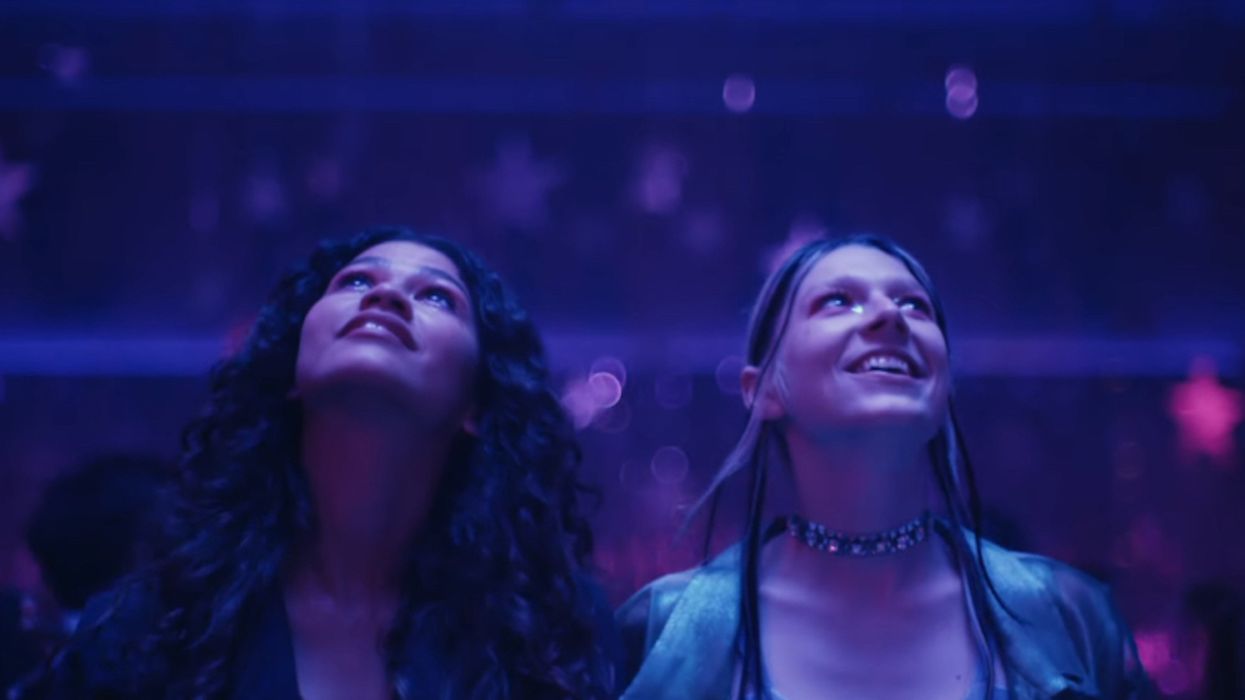How 'Euphoria' Breaks the 'Rules' of Storytelling
The Emmy-winning TV show Euphoria is a hit with audiences and critics because it doesn't care what you've seen before. It has its own rules.

I've said it a thousand times but I will say it again here, there are no rules in screenwriting except planting and paying off details. Still, when you watch coming of age stories enough, you'll see certain tropes that pop up over and over again.
These, in a way, become the "rules" of the genre, and they can become tired or worn out.
That's when it's time for a new show or movie to enter the realm. One that breaks all the rules and maybe creates some new ones for others to try to emulate.
In our time, that show is Euphoria, the graphic and gritty look at what it's like to grow up as a kid in today's world. It covers drug abuse, sexuality, gender, and social media. It's creator, Sam Levinson, wanted to bring a new vision to TV. And he's definitely achieved it.
Let's take a closer look.
How Euphoria Breaks the "Rules" of Storytelling
For those unfamiliar, the show stars Zendaya as Rue, a recovering drug addict who narrates her life through voiceover. Her new best friend is played by Hunter Schafer, a transgender woman.
While there won't be new episodes of Euphoria until 2021, I am still reeling from a first season that took us on a wild ride. After Zendaya won her Emmy last night (making her the youngest to ever win the award for Lead Actress in a Drama), I think a lot of people took notice of the show. Hopefully, they become fans.
One thing they should know right off the bat is that Sam Levinson is not interested in you being comfortable or settling into cliches.
He told The Los Angeles Times, "As with the conception of the show, it’s, 'Let’s break all the rules we can.' Because it feels like the way that we consume stories, or the way that we follow narratives, at this particular point in time is haphazard and meta... It felt like breaking down traditional narratives was the perfect way to tell the story. Breaking the fourth wall [and] voice-over that shifts from first-person to omniscient was just part of the DNA of it. And we tried to be unafraid about it."
That fearless quality is what carried the show onto the airwaves. Levinson pitched to HBO and got his actors ready to make a show that was going to challenge preconceived notions. Though Levinson went in not thinking about that directly. He wanted it to be entertaining.
"...I tend not to approach things intellectually at first. Maybe after the fact I can look at it and see ultimately what it’s doing. I start with the characters and their inner lives. Particularly this show, which is all about subjective experience. I allow that experience to guide the story. Ultimately, whether it feels like a deconstruction or not is something that one can analyze, but it’s not necessarily how I approach it."
Levinson says he writes from real life, so how much of the show is real? He told the AP, "Part of what I love about this show is that I can take experiences that happened in some way, shape or form and I can give them away to these other characters who can experience it in their own way and in their own circumstances. That’s ultimately what storytelling is all about for me."
Levinson drew on his own struggles with addiction.
He takes that personal journey not just in the writing, but also in the directing of episodes. “It’s about addiction and it’s about friendship and it’s about the people who you meet who can change your life, and it’s about holding onto these small moments of joy when they come your way because everything feels fleeting when you’re younger.” Levinson directed 5 episodes of the season and really has a creative hand in sculpting the way everything looks and feels.
But, what if this show doesn't feel like it reflects your youth experience?
I don't think that matters and neither does Levinson. “I’m certainly not making this show about all young people. I don’t think it’s reflective of every person’s experience,” he said. “It’s a show about these characters, and it’s a show about their emotional journeys and their lives.”
The show excels because it's so compassionate and empathetic. We don't have to have gone through everything we've seen on screen to identify with the emotions they elicit. Euphoria is not worried about fitting into what we want it to be.
So much of the writing is just about taking risks to tell emotional stories that track, not wondering if the people who watch the show expect certain kinds of stories to be told because it's a coming of age tale.
Don't be afraid to branch out and address things that your genre never has before...
What do you think of Euphoria? Let us know in the comments.
What's next? Write your own TV drama!
Hundreds of pilots sell to networks and streaming services every year. What's stopping you from selling your idea? Want to learn how to write a TV pilot? You've come to the right place.











